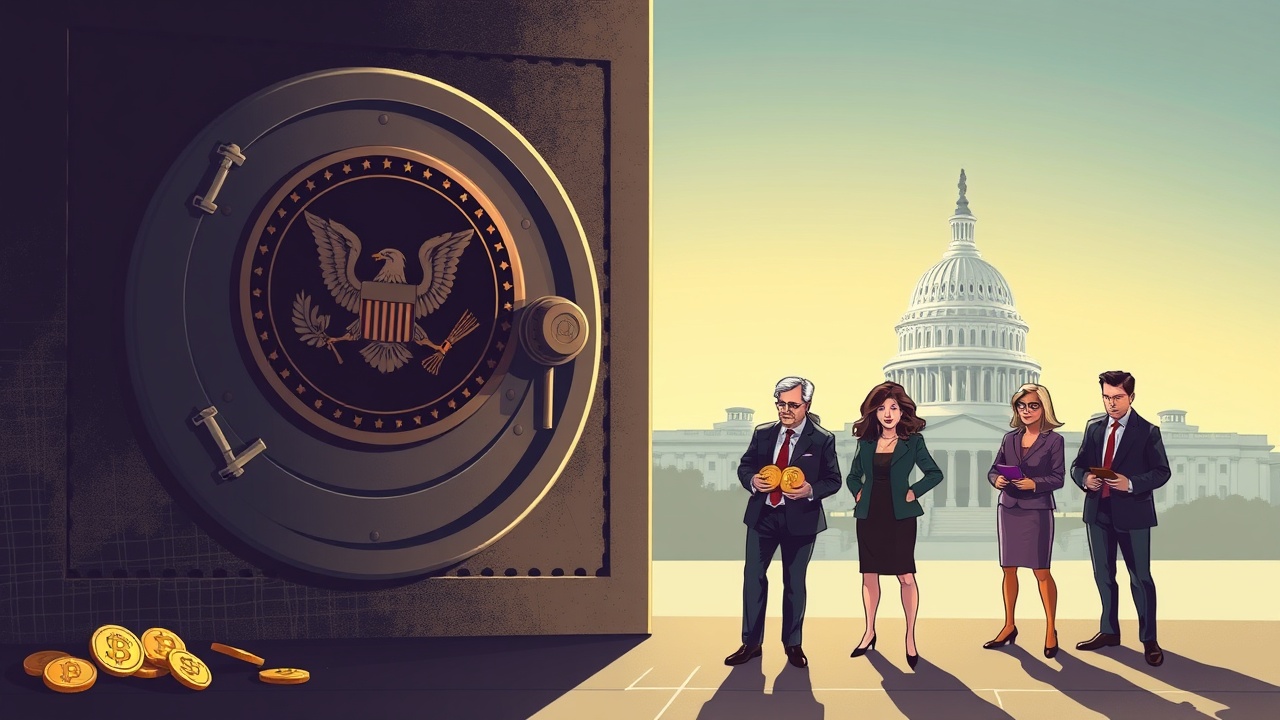Tensions Rise Between House Democrats and the SEC
Tensions are rising between House Democrats and the Securities and Exchange Commission (SEC) regarding a new cryptocurrency legislation. On Tuesday, staff members from the Democratic party expressed frustration, alleging that the SEC is engaging in politically motivated actions by withholding essential information about the potential implications of the CLARITY Act, which aims to establish a regulatory framework for the crypto industry in the U.S.
SEC Assistance and Allegations of Obstruction
Typically, the SEC offers technical assistance to Congress to help lawmakers evaluate the impact of forthcoming bills on the agency and financial markets. This service is generally nonpartisan, involving analyses provided by the SEC’s experts to assist both Democratic and Republican officials. However, Democratic staffers from the House Financial Services Committee have reported that they have been obstructed from obtaining written analyses regarding the CLARITY Act, while their Republican colleagues are said to have received such information privately.
According to multiple Democratic sources, Republican staff members were given comprehensive technical assistance from the SEC concerning the CLARITY Act, which seeks to amend foundational securities regulations. In contrast, when Democratic staffers sought similar documentation, they were informed that those materials were privileged and not available to them.
SEC’s Response and Partisan Concerns
An SEC spokesperson commented that the agency provides technical assistance to any member of Congress who requests it, including regarding crypto-related legislation. However, they did not offer a specific response concerning the Democrats’ claims of being denied assistance on the CLARITY Act.
One Democratic staffer voiced concerns that this approach represents a significant shift in how the SEC typically relates to Congress regarding technical guidance, emphasizing the expectation for the process to remain nonpartisan.
Implications of the CLARITY Act
As the CLARITY Act is poised for committee markup on June 10, the Democrats’ worry over the SEC’s unwillingness to cooperate is compounded by the bill’s potential to dramatically influence the agency’s oversight role in financial markets. Furthermore, during a recent call with SEC representatives, Democratic staffers reported that their inquiries regarding the bill’s broader effects on traditional securities markets were inadequately answered, raising suspicions of an effort to obscure information.
Calls for Analysis and Urgency for Input
In light of these developments, Maxine Waters, the Ranking Member of the House Financial Services Committee, plans to reach out to SEC Chair Paul Atkins to request that both parties receive a detailed analysis of the CLARITY Act’s potential consequences—similar to past practices under former SEC chair Gary Gensler. A draft letter reveals that Waters believes a thorough review is crucial to informed policymaking, especially considering the bill’s major impact on sectors like investor protection and market competition.
Democrats are particularly alarmed that if the CLARITY Act excludes cryptocurrencies from SEC regulation, it could create significant loopholes that might also benefit established financial institutions as long as they integrate blockchain technology. This concern amplifies their urgency to obtain input from the SEC prior to the committee vote planned for next week.
Political Divisions and Future Prospects
The political divisions raise questions about the prospects for the CLARITY Act, despite the current backing it enjoys from Republican members and some pro-crypto Democrats. Waters and her colleagues are likely to oppose the bill due to ongoing implications of Trump’s personal crypto interests, yet they are equally apprehensive that the SEC’s lack of cooperation could deter support even from their own pro-crypto allies. As one Democratic staffer pointedly noted,
without feedback from the SEC, evaluating the complexities and necessary improvements within the bill becomes increasingly difficult.
In this escalating political environment, the interplay between the SEC and congressional staff could prove significant for the future of crypto regulation in the United States.




